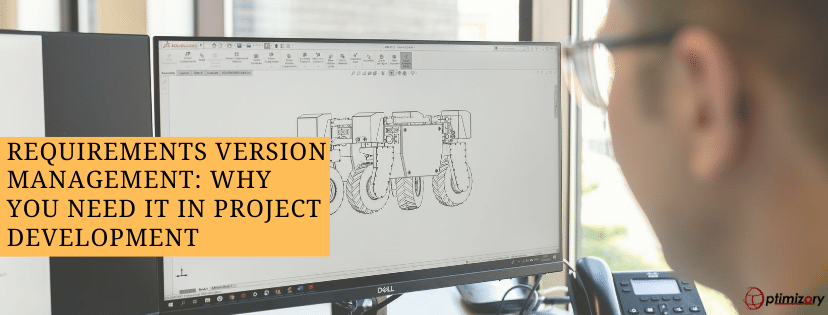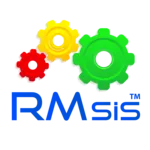Almost every product evolves through a series of releases or iterations that correct defects, add more features, or update previously implemented features. It’s quite possible that for a product there can be a number of versions running in parallel.
Therefore you need to determine the best ways to store and manage these requirements. And avoid confusion about which requirements were used in each version while branching. An in-depth version control system helps to achieve this.
To efficiently manage these requirements and navigate through different versions, a robust version control system is imperative. Such a system allows for comprehensive tracking of changes over time, aiding in project management and requirement management within project planning software.

Version control plays a crucial role in managing changes in requirements, enabling a complete traceability of all versions in a project, including the identification of authors for each version. In contemporary project development, the complexity necessitates the adoption of requirements version management by project managers, business analysts, and product owners, highlighting its significance in ensuring efficient project management.
Today, due to the increasing complexity of project development, most project managers, business analysts, or product owners are using requirements version management. In this article, we will discuss the importance of Requirement version management and why you need it in project development.
Importance of Requirements Version Management
Version control or version management in project management is not just a process to manage and track changes to requirements. It helps you develop and ship products faster.
To understand the importance of a version management system in project development, let’s look at these scenarios:
Scenario 1: You need to search for a project requirement, but you discover you have multiple versions, and you have no idea, which is the current version. Searching for a project requirement becomes challenging when multiple versions exist, making it unclear which version is the most current—highlighting the need for effective requirement management software.
Scenario 2: Team members making changes to the wrong version of requirements due to lack of visibility or clarity, emphasizing the importance of streamlined project tracking software.

Scenario 3: An approver signed off on a set of requirements, but you realize they had an old version. Now you need them to sign off all over again. Instances where outdated versions receive approval, necessitating the need for a robust requirement management system to avoid rework.
Scenario 4: Accessing or modifying features from older versions without relevant specifications, underlining the significance of clear requirement management and project tracking.
To avoid such scenarios and save yourself from reworking, or increasing the risk of errors, you need effective requirements version management. Version control not only makes it clear which requirements are part of the latest version. It allows you to check the historical versions.
Three Primary reasons for using Requirements Version Management
Robust version control can benefit your development team in the following three ways:
Team Collaboration
Your team may consist of people from different departments or areas in the organization. And keeping everyone on the same page becomes a challenge. To overcome this, you need to provide global access to your team members at all stages of development, essential for efficient project planning software
With the right requirements version management, each team member can work on an independent version without getting confused.
Log change history
Throughout the project development cycle, individuals make many changes. These changes include the creation or deletion of requirements. Version control captures the history of changes including the author, date, and written notes on the purpose of each change.
Having the complete history enables going back to previous versions to help in root cause analysis for bugs, and fix problems in older versions of the software.
And if you have compliance and regulations to meet, auditing log history becomes even more necessary.
Traceability
Being able to trace each change made to the project enables you to explain the purpose and intent of each change. It becomes easier to perform root cause analysis. More importantly, it helps your team members understand what and why changes are made. It assists developers in making correct and cordial changes that are in line with the intended long-term design of the product.

Projects typically result in creating a lot of requirement documents, from project reports to deliverables. By using requirements management software with version control, or version management, you can effectively and efficiently track and control changes to these requirements directly within your project.
If you are looking for version control within Jira, RMsis is the best available tool.
RMsis is the only Requirements Management tool for Jira that also supports version management. It allows your team to create and manage multiple versions in different branches of a requirement.
Enhancing Project Tracking with RMsis
RMsis, as an exemplary tool in requirements management, aligns seamlessly with the ethos of efficient and the best project management software. It empowers project teams to manage multiple versions within the framework of Jira, ensuring an organized and coherent approach to version control.

The visual representation of RMsis Version Control allows for a comprehensive overview of all branches and versions, simplifying the identification of finalized requirements. By freezing requirements in specific versions, RMsis ensures a cohesive and conflict-free project view, an indispensable feature in complex project scenarios.
In summary, effective project management relies on a strong foundation of requirement management and version control. Leveraging advanced tools like RMsis within project tracking software not only streamlines the development process but also ensures a more structured and efficient approach to project delivery.
Check out RMsis and sign up for a free trial today.





